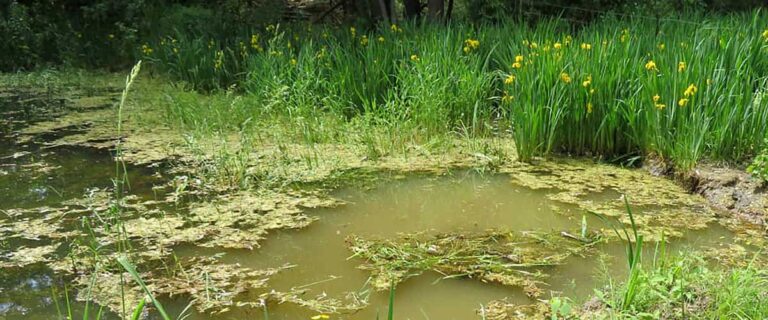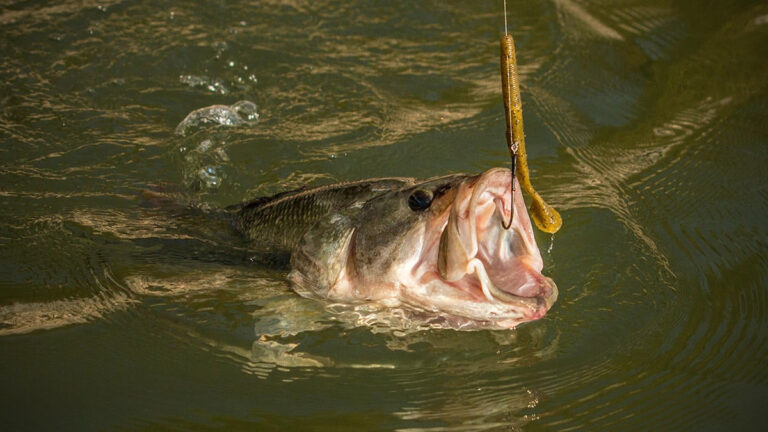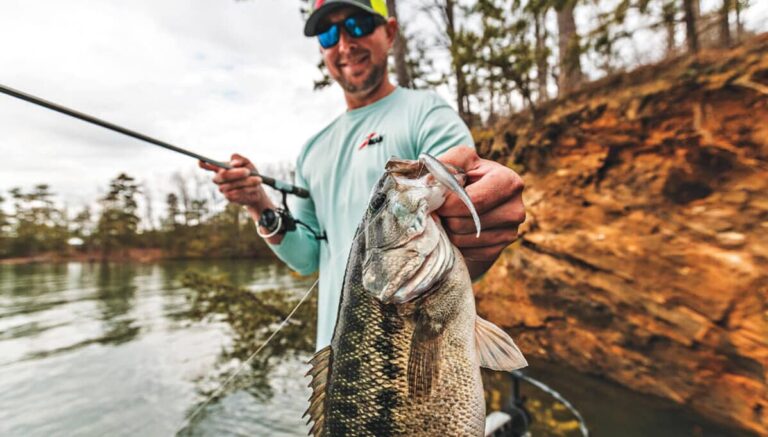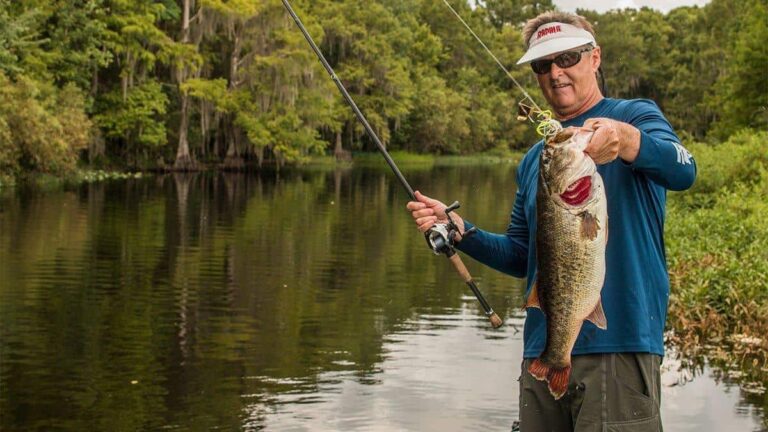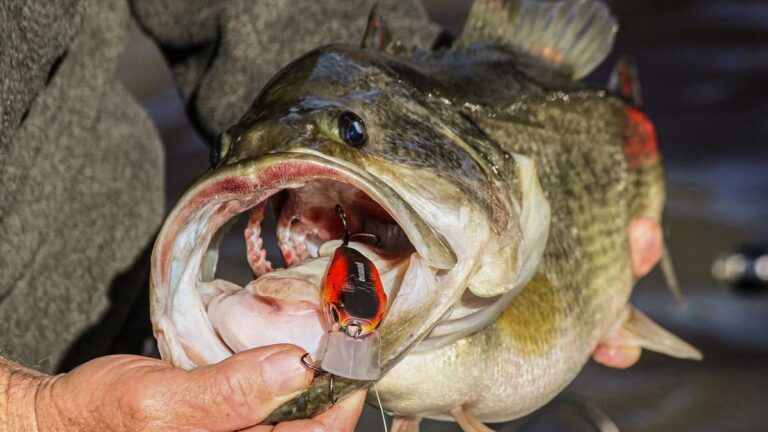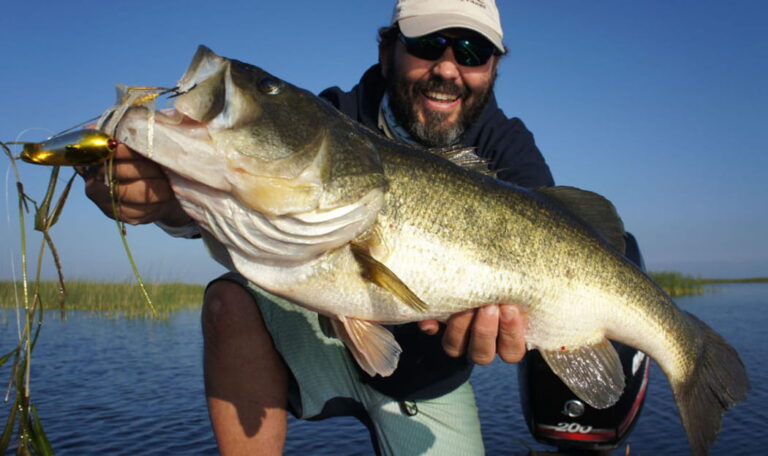What is the Best Structure for Bass Fishing?
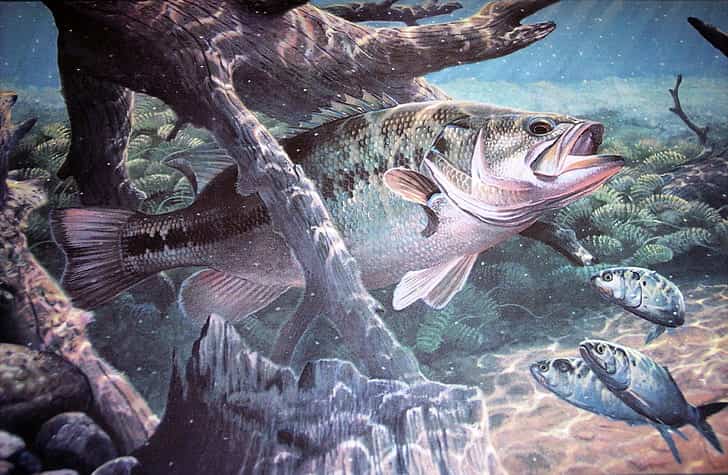
Everyone is always talking about how bass hold to structure and that you need to be fishing it.
The cover both protects bass and provides them with food. But what is the best structure for bass fishing?
There are so many different types of structure that bass can be holding to.
We will discuss everything you need to know to determine where you should be fishing.
Also Read: How to Find Bass in a Pond
What Kind of Structure Do Bass Like?

Bass like structure that gives them security, food, and shade from the hot sun. Bass’s favorite natural structure are tree laydowns and docks.
All of the branches and stems of the tree give bass tons of places to hide.
Bass hide in these to stay away from bigger predators and to ambush small prey that swims by.
Fish are also very attracted to docks. Docks have thick pylons and cross sections that provide stable cover all year round.
Grass and rocks are also key areas that bass will live. Rocks are good but not great.
The bass can’t really hide under or around rocks, giving them less security. Grass is great if it is the right kind of grass.
Lily pads, hydrilla, milfoil, and a couple others are great. But matted pond grass and algae scum suck all of the oxygen out of the water and are not firm enough to give proper structure.
Artificial Structure

Product from Fishiding.com – Image from underwaterfishphotos.com
Tree laydowns might be the best natural structure, but there is one type of structure that is a bit better. This is artificial structure.
These artificial fish habitats are specially designed to attract more bass while being easier to fish.
The materials that these artificial structures are made out of are flexible and impossible to snag your lure on.
They will also not deteriorate at all. You can either buy these structures or make them yourself.
These are perfect for when you are building your own pond or you have permission from the owner of a pond.
Tree Laydowns
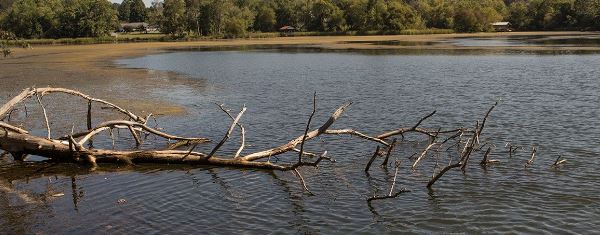
Like I said earlier, laydowns are your best bet to find bass. They offer the most cover and typically are very large.
Trees hold tons of bass, but can be difficult to fish. Most lures get snagged on branches and hook into the tender wood very easily.
I can’t even tell you how many lures I have lost from getting snagged on a tree.
Flipping jigs are the most reliable and snag proof lure for fishing in these laydowns. You don’t have to cast inside the laydown to catch fish.
Any lure can be effective when it is retrieved around or above a laydown.
Spinnerbaits are my favorite lure for fishing around laydowns because the flash and vibration call bass out from deep inside the cover.
Docks

When I say “docks”, I am actually using that as a rather broad term.
I am really referring to any type of dock, pier, bridge, or other man-made structure that has pylons and crossbeams in the water.
They are all the same from the bass’s perspective. It is much easier to keep your lure from getting snagged, but it can be more difficult to fish up under the docks.
Flipping a jig or skipping a soft plastic bait are the best strategies to fish as much of the dock as possible.
Search baits that can call bass out from hiding also work. I will mostly skip soft plastics when fishing docks.
Rocks
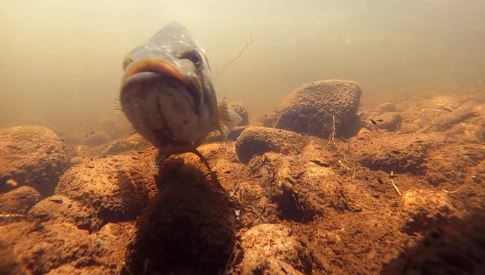
Rocks are one of my favorite places to bass fish. Bass that are sitting around rocks will be much more spread out than the bass on trees and docks.
Rocks are still structure, but it is much harder for bass to hide in the rocks.
The advantage of this is that you don’t have to flip a super weedless lure around to catch them.
You can pretty much fish any lure you want except lures with pointy jig heads.
These pointy designs tend to get wedged in between rocks and cause you to get snagged.
Crankbaits and football jigs are my favorite lure for fishing rocks.
Bass’s #1 forage in the rocks are crayfish. So match your lure colors and designs to mimic crayfish.
Grass

Grass is a double edged sword. On one hand, grass holds tons of bass. On the other hand, you are very limited to the lures that you can use.
Even in the highest quality grass, you still need to use semi-weedless lures. Swim jigs, spinnerbaits, Texas rigs, and other weedless designs work great.
If the weeds are matted algae or scum which is often found in grassy ponds, you have very few options.
A hollow body frog and weedless rigged soft plastics are really your only options.
Can You Bass Fish in Open Water?
Yes, bass fishing in open water can actually be very effective.
Bass often cruise open water in order to find food, to find a place to spawn (in the spring time), to get away from over crowded areas, or during seasonal migrations.
Bass in open water are typically on the move which means they also have to eat. If bass are eating than you can catch them.
To effectively fish these waters you are going to need to use lures that cover lots of water.
Since you can’t just hyper focus on one piece of structure at a time, you need to fish much quicker.
Recap
- Bass Prefer Specific Structures: Bass are attracted to structures that provide security, food, and shade. Natural structures like tree laydowns and docks, as well as artificial structures, offer ideal habitats for bass.
- Natural Structures: Tree laydowns and docks are favored by bass due to the abundant hiding places they offer. These structures provide cover from predators and allow bass to ambush prey effectively.
- Artificial Structures: Specially designed artificial fish habitats are considered superior for attracting bass. These structures are easy to fish, won’t snag lures, and remain durable over time. They are particularly useful for pond construction or when permitted by pond owners.
- Specific Lures for Different Structures: Tailor your lure choice based on the structure you’re fishing. For tree laydowns, flipping jigs work well, while spinnerbaits are effective for attracting bass around laydowns. Techniques like flipping and skipping soft plastics are recommended for docks.
- Rocks and Grass: Rocks offer a spread-out bass population, making it easier to fish various lures. Crankbaits and football jigs are ideal for fishing around rocks. Grass, while holding many bass, requires semi-weedless lures like swim jigs and Texas rigs.
- Open Water Bass Fishing: Bass can be found in open water, especially during seasonal migrations or when seeking food. Using lures that cover a large area is crucial in open water, and quick fishing techniques become essential.
FAQ
Q: Can You Bass Fish in Open Water? A: Yes, bass fishing in open water is effective, especially when bass are on the move. Lures that cover a large area quickly are essential for successful open water bass fishing.
Q: What is the Best Bass Fishing Structure? A: Identifying the best structure can vary, but tree laydowns and rocks are often considered highly productive. However, each type of structure requires a specialized fishing approach for optimal results.
Q: Are Artificial Structures Better Than Natural Ones? A: Artificial structures are considered advantageous due to their design, preventing lure snags and ensuring durability. They are particularly useful for anglers constructing their own ponds or with permission from pond owners.
Q: What Lures Work Best for Different Structures? A: For tree laydowns, flipping jigs are reliable, while spinnerbaits are effective around docks. Rocks are suitable for crankbaits and football jigs, and grassy areas require semi-weedless lures like swim jigs and Texas rigs. Adjust your lure selection based on the specific structure you’re targeting.
Tying this Off
You can almost always find bass on structure. These can be a bit difficult to fish at times, but it is well worth the effort.
Don’t get me wrong, open water bass fishing can be awesome and is honestly more rewarding.
But being able to identify high percentage cover is crucial to bass fishing success especially if you are bank angler that doesn’t have fancy bass boat accessories.

